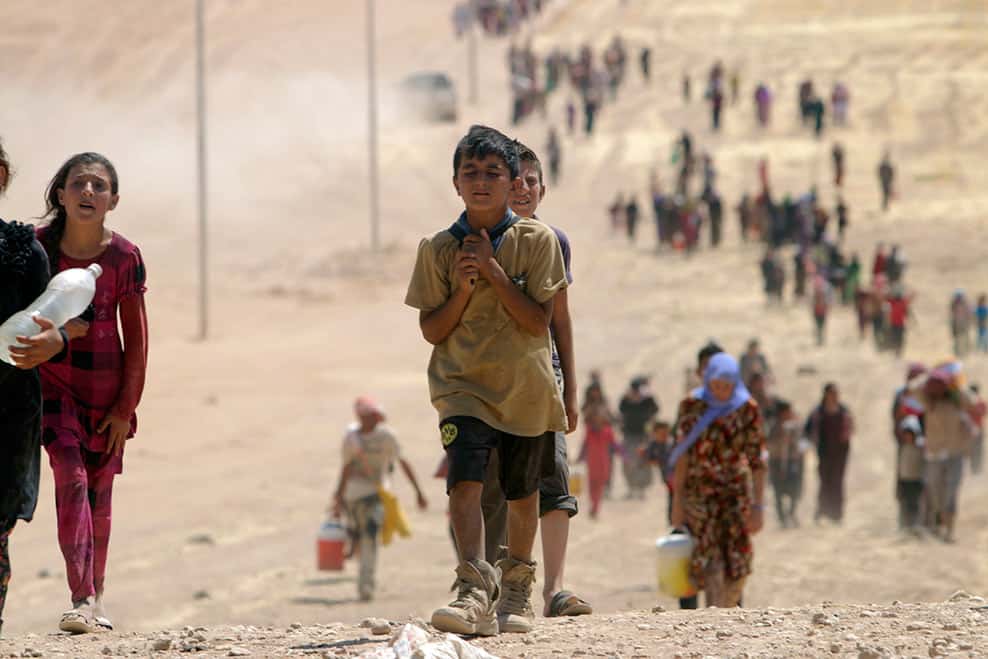In recent years, the persecution of Christians has emerged as a distressing global issue. While Christianity is the largest religion in the world, with billions of followers, its adherents face varying degrees of persecution in different parts of the globe. This alarming trend calls for a deeper understanding of the root causes behind the persecution of Christians. By shedding light on these causes, we can gain insights into the complex dynamics that fuel this unjust treatment and work towards fostering religious freedom and tolerance for all. In this blog, we will explore some of the key factors that contribute to the persecution of Christians.
Religious Intolerance and Extremism
Religious intolerance and extremism serve as primary drivers behind the persecution of Christians. In some regions, radical ideologies fueled by intolerance result in violence, discrimination, and the targeting of Christian communities. Extremist groups view Christianity as a threat to their ideologies and seek to suppress or eliminate it. These groups often justify their actions by distorting religious teachings and promoting hatred and discrimination against Christians.
Political and Socioeconomic Factors
Persecution of Christians can also be linked to political and socioeconomic factors. In certain countries, Christians may be seen as a minority group or associated with foreign influence, making them vulnerable to discrimination and persecution. Political instability, economic disparities, and ethnic tensions can exacerbate these issues, leading to the marginalization and mistreatment of Christian communities.
Autocratic Regimes and State-Sponsored Oppression
In some cases, the persecution of Christians is driven by autocratic regimes that seek to suppress dissent and control religious expression. These oppressive governments may enforce strict regulations on religious practices, limit access to religious institutions, or even propagate propaganda against Christianity. State-sponsored persecution can include imprisonment, torture, and restrictions on religious activities, leaving Christians in a constant state of fear and vulnerability.
Religious Conversion and Apostasy Laws
Another factor contributing to the persecution of Christians is the presence of religious conversion and apostasy laws in certain countries. These laws often make it illegal or highly dangerous for individuals to convert from Islam or other dominant religions to Christianity. Such legislation restricts freedom of religion and can result in severe consequences for those who choose to embrace Christianity.
Social Hostility and Discrimination
Societal prejudice and discrimination against Christians play a significant role in their persecution. Negative stereotypes, biased beliefs, and deep-seated prejudices can lead to social exclusion, denial of rights, and even violence against Christians. This hostility can manifest in various forms, from verbal abuse and harassment to property destruction and physical attacks.
Global Terrorism and Violent Extremism
The rise of global terrorism and violent extremism has intensified the persecution of Christians worldwide. Extremist groups such as ISIS and Boko Haram explicitly target Christians, aiming to eradicate their presence and impose their own radical ideologies. The horrifying acts of violence and mass killings perpetrated by these groups have created an atmosphere of fear and insecurity for Christian communities in affected regions.
Historical Factors and Cultural Context
To truly understand the root causes of Christian persecution, we must consider historical factors and the cultural context in which it occurs. In some regions, historical conflicts, religious rivalries, or deep-rooted prejudices have contributed to ongoing tensions between Christian communities and other religious or ethnic groups. These historical grievances and cultural dynamics can fuel animosity, making Christians vulnerable to persecution as a result of long-standing divisions.
Lack of International Attention and Response
The lack of sufficient international attention and response to the persecution of Christians is a significant contributing factor. In some cases, the global community may overlook or downplay the severity of Christian persecution due to geopolitical interests or a focus on other pressing issues. This lack of attention can embolden perpetrators and perpetuate a sense of impunity, leaving Christian communities without the support and protection they desperately need. Increasing awareness and advocating for stronger international responses are vital steps toward addressing the root causes and ensuring the rights and safety of persecuted Christians.
Conclusion
Understanding the root causes of the persecution of Christians is crucial for addressing this global issue and working towards a more inclusive and tolerant society. It is essential for governments, civil society organizations, religious leaders, and individuals around the world to stand united against the persecution of Christians, promoting religious freedom, and fostering an environment of respect and acceptance for all faiths. Only through collective efforts can we strive to eliminate the root causes of this persecution and create a world where religious diversity is cherished and protected.
